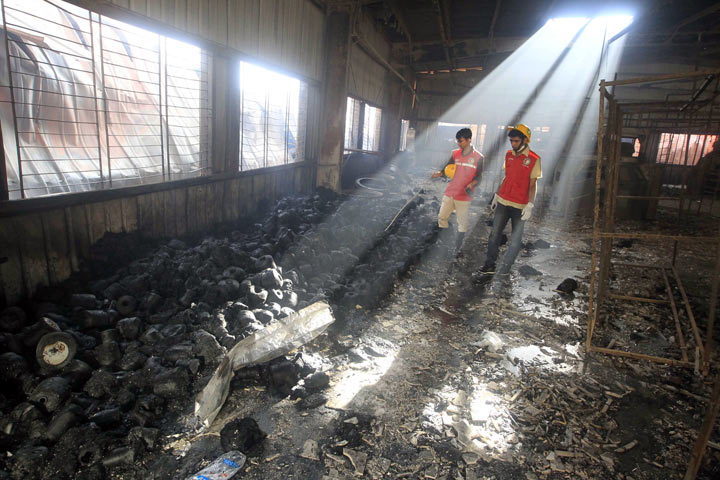TORONTO – Less than six months after one of the deadliest garment-factory accidents killed more than a thousand people in Bangladesh, 10 more were killed in a fire at the country’s Aswad factory.

While authorities and global clothing companies have pledged to improve safety standards, new documents suggest a Canadian link to the two factory disasters.
Read more: Where do Canadians’ clothes come from?
Canada’s Joe Fresh clothing was among the Western clothing labels found in April’s Rana Plaza collapse, but owner Loblaw Companies said Thursday it’s “confident” it hasn’t placed any product orders from the Aswad facility. Spokesperson Julija Hunter said it has a “no tolerance” policy with vendors when it comes to unauthorized outsourcing.
But after the CBC sent Loblaw shipping records showing a May 16, 2013 clothing or fabric order from the facility, the company told Global News it has seen the documents that “suggest there may have been such unauthorized production” and is now investigating.
Loblaw earned public relations points with its response to the Rana Plaza collapse, providing updates from the CEOs and pledging to improve the harsh and often unsafe conditions in an industry that is the world’s third-largest.
Read more: Calls to boycott Bangladesh manufacturers could do more harm than good
The company also joined some European companies in a collective pledge of $60 million over a five-year period to create a safe and sustainable “Bangladeshi Ready-Made Garment” industry.
It was the only Canadian company to sign the Accord on Fire and Building Safety and claims to have completed audits of its Bangladeshi vendor factories and “removed from our approved list those factories who did not meet our new standards,” along with some local support projects in the area of the collapse.
The pledge has been questioned by activists and critics, however. Oxfam America’s Director of Private Sector Engagement Chris Jochnick said Western companies may have to begin “digging deeper and face more squarely” the problems in dealing with the Bangladeshi garment industry.
With files from The Associated Press


Comments